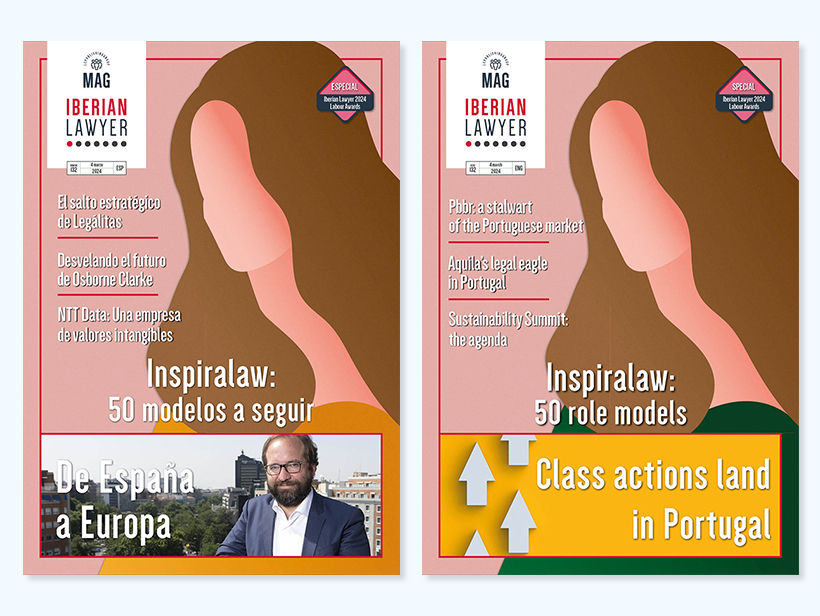Editorial November/December 2009
There will be no surprises in 2010, according to the Managing Partner of one major Spanish firm. There are only two scenarios ahead for lawyers in the New Year: success or failure.
Aquéllos que han evitado el cambio pueden vivirlo de dos maneras o bien a la cabeza de la situación o ya posicionados en la cola dispuestos a recibir atención médica urgente.
El mercado, no cabe duda, ha cambiado – por lo menos a medio plazo – y los despachos tienen dos opciones cambiar o sucumbir. En conclusión el inmovilismo en estas condiciones de mercado lamentablemente no es una opción segura.
It is not a Darwinian ‘survival of the fittest’ approach that brings him to this conclusion but something much more pragmatic – the ability of partners within a law firm to develop a consensus on the collective way forward and then the willingness to actually implement the change this requires (the more difficult bit, of course).
For firms that have already made hard decisions this year – revisiting their strategic vision and how to get there – the future will only be better, he believes. The difficult decisions of 2009 will start to bring benefits in 2010.
Those who have so far avoided change, however, may be at best on life support or at the very least in the queue for urgent medical attention. The market has changed – for the mid-term at least and perhaps for ever – and law firms have two stark options, change or fail. ‘No change’ in such difficult market conditions is sadly not an option, he believes.
Peter Cornell suggests in this issue, that the less democratic firms may find change easier than those struggling to build a consensus around diverse partner interests. Partnerships may be all well and good until it is time for making difficult decisions.
But as perhaps the second oldest profession in the world, it is difficult to imagine that law firms – or to be more precise, the lawyers that staff them – will disappear. As matter cannot be made or destroyed (expressed by Einstein as E=MC2), so perhaps Iberia’s legal chess pieces will simply be moved around the board. Shifts which can already be witnessed within the Lisbon Special Report in this issue.
So we may expect a 2010 of law firm births and marriages if not deaths. Perhaps for forward-thinking businesses this may offer the opportunity to bring in-house some good external lawyers, while it may also be of interest to those foreign law firms still contemplating opening a Spanish office.
For in-house lawyers the New Year may continue to present new challenges. If the focus so far has been on reorganising company structures and restructuring debt, 2010 may be the year when a more difficult message falls. Within some business sectors, customer demand has shifted heavily. As it may prove difficult to reduce internal costs further (legal teams are already low on lawyers), they may instead attempt to take another bite out of the fees they pay to their externals.
No surprise that one of the most awaited sessions at Iberian Lawyer´s European In-House College in February 18 and 19 will be the role and strategy of the in-house legal team – what work can be more effectively managed internally or by external lawyers – being led by Jeremy Ogden, a former General Counsel at Barclays Bank. A second session will explore how to better select and work with external lawyers. Again, whether this is good or bad news for the Managing Partners participating in the session may depend upon whether they have already adapted their business proposition to the new business reality, or prefer to keep their head in the sand.














